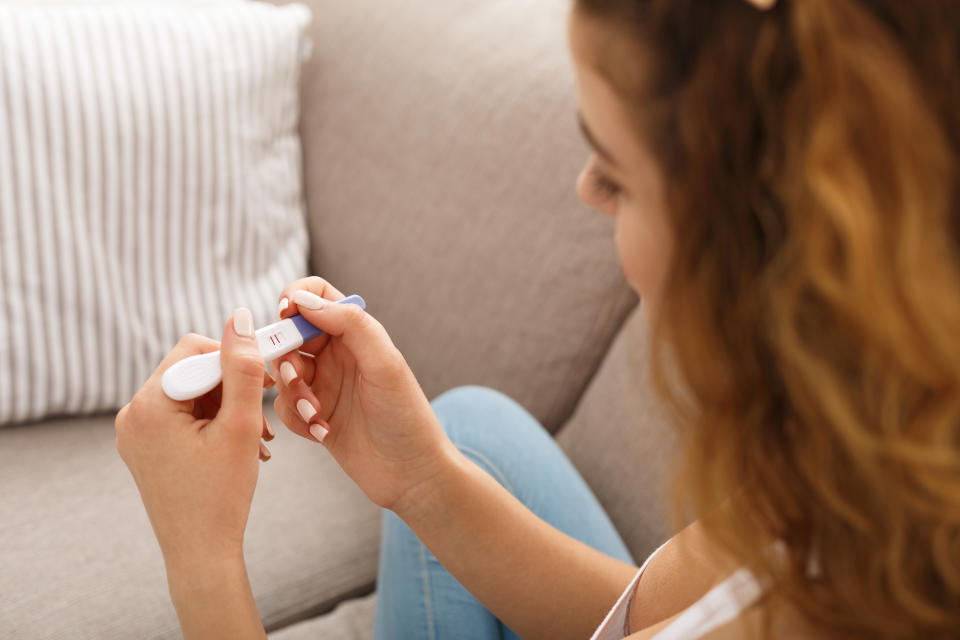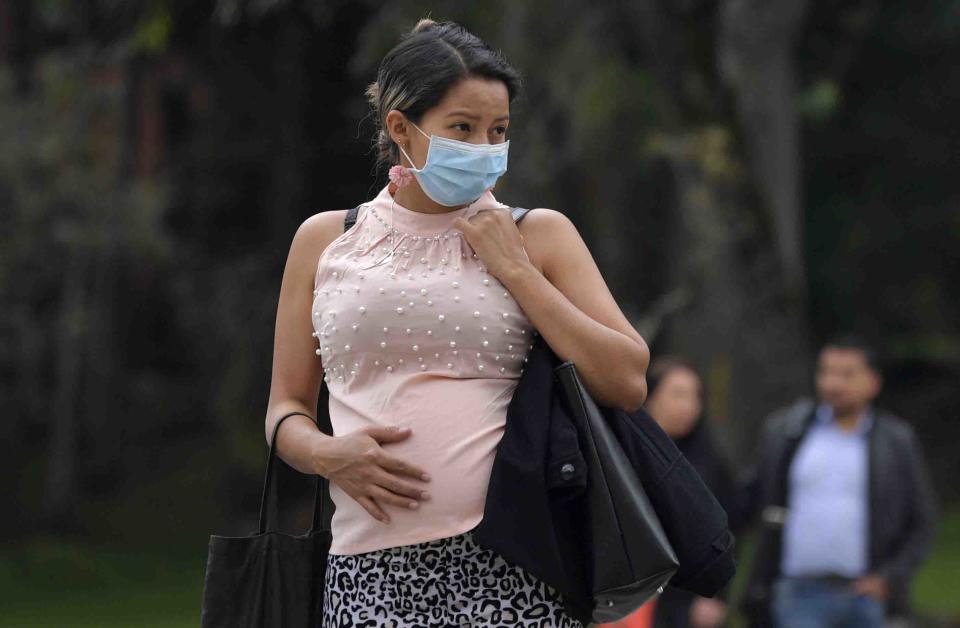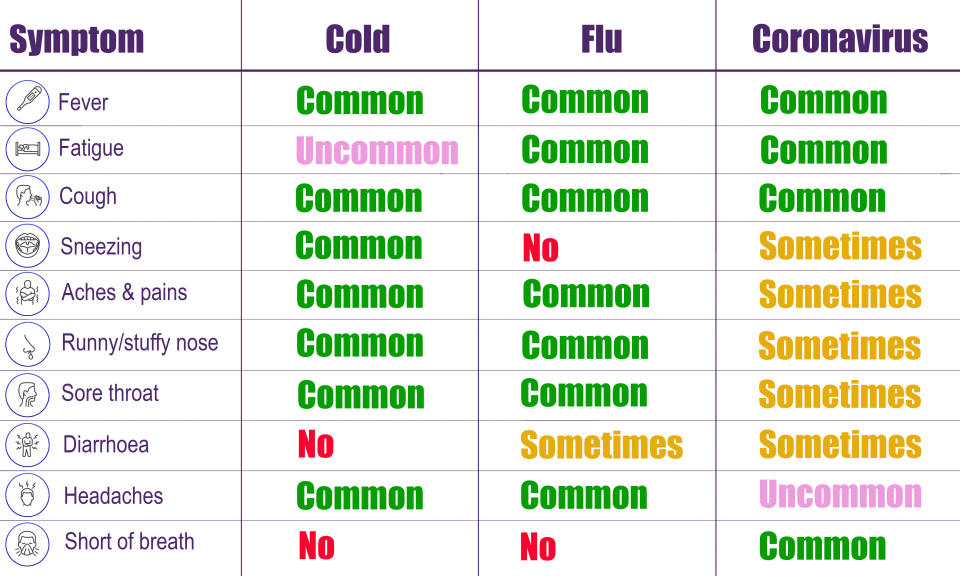At-home abortions approved in England during coronavirus outbreak

Women in England can now have at-home abortions after the rules were relaxed during the coronavirus outbreak.
After initially saying women would be unable to terminate an early pregnancy until the pandemic has passed, authorities are now allowing two pills to be taken at home “on a temporary basis”.
Ordinarily, women wanting a termination in England during their first trimester are required to go to a registered clinic to take one pill, collecting a second to take at home.
By preventing pregnant women from going to clinics, the move is hoped to stem the spread of infection.
Pro-choice campaigners have welcomed the decision, arguing women should always have the option of terminating an early pregnancy in the comfort of their own home.

Coronavirus: at-home abortions ‘temporarily’ allowed in England
The Department of Health in England told the BBC “public safety and continued access to key services is our priority during this difficult period.
“We are updating our guidance so women who need an abortion up to 10 weeks and can't access a clinic can use abortion pills at home.
“This measure will be on a temporary basis and must follow a telephone or e-consultation with a doctor.”
The next steps to making this available are said to be announced “shortly”.
Latest coronavirus news, updates and advice
Live: Follow all the latest updates from the UK and around the world
Fact-checker: The number of COVID-19 cases in your local area
Explained: Symptoms, latest advice and how it compares to the flu
The policy on abortions has changed several times throughout the relatively short-lived coronavirus outbreak. In severe cases, the virus can trigger a respiratory disease called COVID-19.
On 23 March, the government announced termination pills could temporarily be taken at home, before claiming the decision was “published in error”, with there being “no changes to how abortion services are regulated”.
A number of organisations wrote to health secretary Matt Hancock urging him to reverse the decision, arguing it “made no sense”.
Many were concerned about how pregnant women with coronavirus symptoms, who were rightly self-isolating, would access the service.
Clare Murphy from the British Pregnancy Advisory Service (BPAS) told the BBC one pregnant woman with pre-existing health conditions was “absolutely beside herself”.
“We will be putting her health at risk, the health of her child, and the health of NHS staff if we force her to come out of the house to attend a clinic,” Murphy said.
Speaking of the latest decision, Dr Asha Kasliwal, from the Faculty of Sexual and Reproductive Healthcare, said: “Maternity and abortion services are closing their doors, and there is a severe shortage of midwives.
“Thousands of face-to-face appointments for abortion care have been cancelled.
“Women are caught in the middle of this perfect storm, trying to do what is best for them and their household.
“It is only right the government has decided to reinstate telemedicine for abortion consultations and home use of mifepristone, the first course of early medical abortion treatment.
“Last week’s withdrawal of this decision by the government has only served to make it harder for women to take heed of its own advice to stay home, thereby protecting NHS staff and saving lives.”
Coronavirus: how will abortions be carried out in the rest of the UK?
Each of the UK’s four countries make their own healthcare decisions.
Abortion was only decriminalised in Northern Ireland in October 2019.
Patients have still been travelling to England for the procedure, which was due to change in April.
The Department of Health in Northern Ireland told the BBC the coronavirus outbreak has forced officials to “reconsider” how to make the service available.
“In Northern Ireland, abortion care is now lawful, but services have not yet been established and telemedical abortion care is not permitted under the regulations produced by the government last week,” said Ann Furedi, from the BPAS.
“As a result, women are being forced to travel hundreds of miles via ferry and public transport to clinics in England at a time when they are also being told to stay at home to save lives.
“We urge policymakers to now implement similar measures to permit telemedical abortion services in Northern Ireland as a matter of urgency."
Women in Wales and Scotland are already permitted to take the two termination pills at home.
Officials in both countries are considering temporary changes that will enable pregnant women to continue to have access to this service during the coronavirus outbreak.

‘Safe, effective and preferable’ to take abortion pills at home
Pro-choice campaigners have long argued for at-home abortions in the early stages of pregnancy.
Around 205,000 terminations take place every year in England and Wales.
In England, pregnant women who choose to have a termination in their first trimester are given two drugs.
The first, mifepristone, blocks the hormone that sustains a pregnancy. This has to be collected and taken at a registered clinic.
Women are then given a second pill, misoprostol, to take between 24 and 48 hours later at home. This causes the womb to contract so the pregnancy can be “passed”.
Campaigners have lobbied there is no reason why both drugs cannot be taken at home.
Women have previously reported enduring cramps and bleeding on the way home from the clinic after taking the first pill, with one even having diarrhoea on public transport.
Professor Lesley Regan, president of the Royal College of Obstetricians and Gynaecologists, previously told the Victoria Derbyshire show: “We know when women are allowed to take the second tablet at home that it is safe, it's highly effective and they much, much prefer it.
“The need for the second visit to the clinic frequently acts as a barrier to women accessing safe, regulated abortion care, and is medically unnecessary and incurs significant NHS costs”.
Since Scotland allowed women to take abortion pills at home, four out of five are said to have chosen to do so.
The English law reportedly drives thousands of women to buy abortion pills illegally over the internet so they can take them in the comfort of their own home.

What is the coronavirus?
The coronavirus is one of seven strains of a virus class that are known to infect humans.
Others include the common cold and severe acute respiratory syndrome (Sars), which killed 774 people during its 2002/3 outbreak.
The coronavirus mainly spreads face-to-face via infected droplets coughed or sneezed out by a patient, but there is also evidence it can be transmitted in faeces and urine and survive on surfaces.
Symptoms tend to be flu-like, including fever, cough and slight breathlessness. Early research suggests four out of five cases are mild.
In severe incidences, pneumonia may come about if the infection spreads to the air sacs in the lungs, causing them to become inflamed and filled with fluid or pus.
The lungs then struggle to draw in air, resulting in reduced oxygen in the bloodstream and a build-up of carbon dioxide.
The coronavirus has no “set” treatment, with most patients naturally fighting off the infection.
Those requiring hospital treatment are offered “supportive care”, like ventilation, while their immune system gets to work.
Officials urge people ward off the infection by washing their hands regularly and maintaining social distancing.
Since the coronavirus outbreak was identified in China at the end of 2019, more than 800,000 cases have been confirmed across more than 170 countries, according to John Hopkins University.
Of these, more than 170,300 are known to have “recovered”.
Globally, the death toll has exceeded 38,700.




